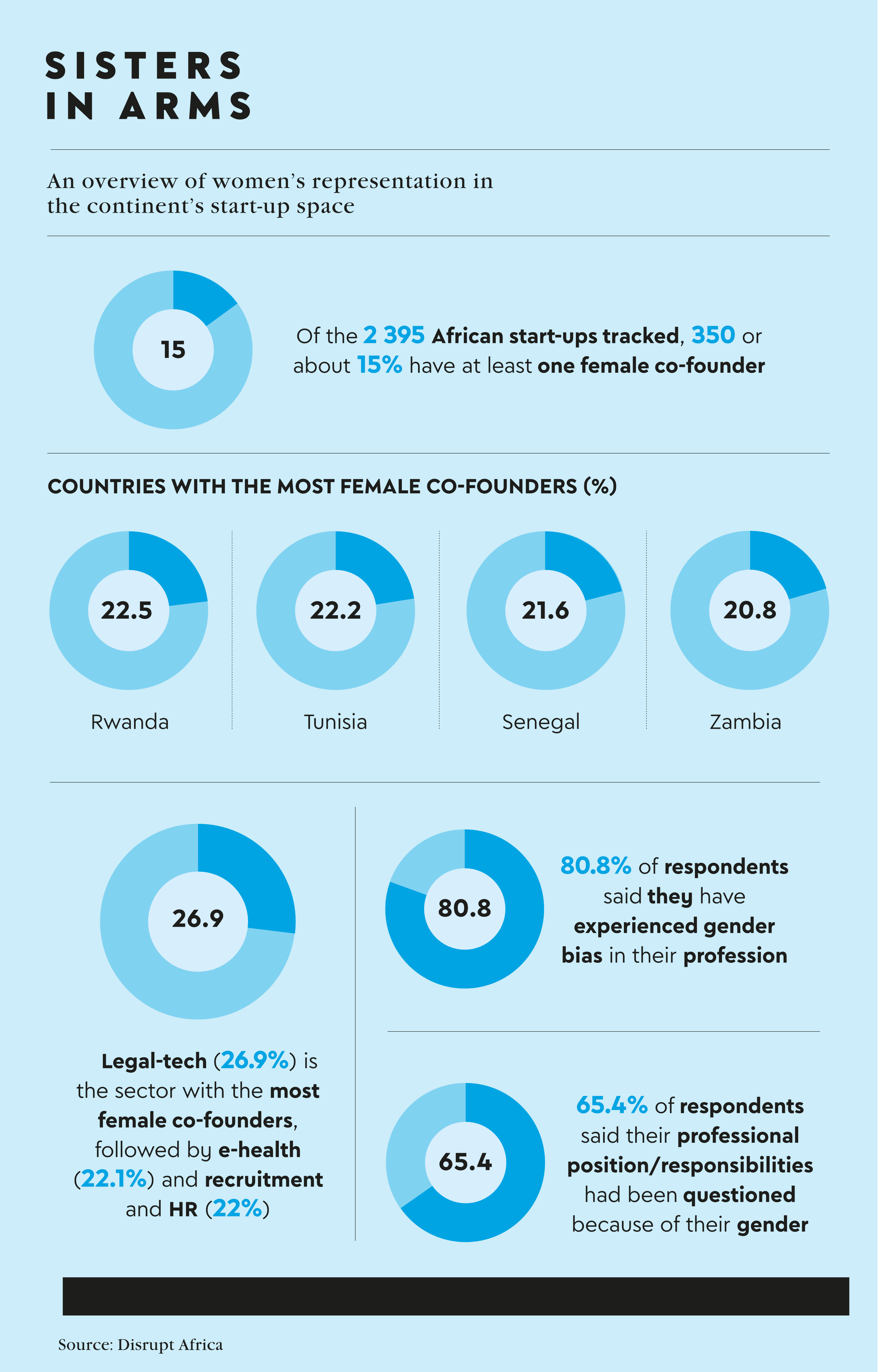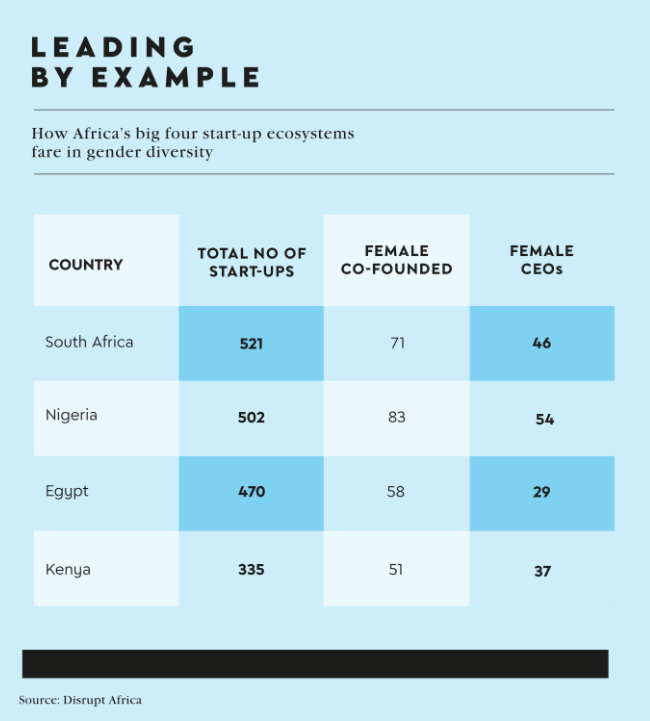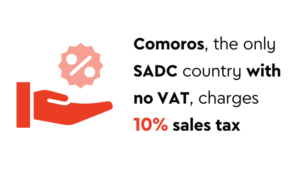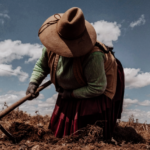You’ve probably encountered these statistics before – globally, women represent just 28% of engineering graduates, 22% of AI workers, and less than one-third of tech sector employees. Sobering indeed, the statistics underscore the need for concerted efforts to ensure women have equal access and representation in the tech workforce.
The situation locally is not much better. In South Africa, according to the Unesco Science report 2021, the percentage of female AI workers is marginally higher at 28%. But on a wider scale, only 23% of tech jobs in South Africa are held by women, says Celeste Gibbens, Lenovo’s marketing director for the Middle East and Africa.
The importance of gender diversity in the IT sector goes beyond just achieving gender equality; it is crucial for addressing gender biases in technology itself. UN Women cites a global study by Stanford University, which analysed 133 AI systems over 25 years and found that 44.2% displayed gender bias, with 25.7% exhibiting both gender and racial bias.
‘AI systems are biased because they are human creations. Who makes decisions informing AI systems and who is on the team developing AI systems shapes their development,’ a report on the study says. It argues that increasing women’s representation in AI and tech teams can lead to more unbiased algorithms, equitable resource distribution and the eradication of harmful stereotypes perpetuated by biased systems.
‘By excluding women from these spaces – spaces that are evolving and growing at a phenomenal pace – we run the risk of erasing their existence and lived experiences entirely,’ says Gcobisa Ntshona, HR director of LexisNexis SA.
South African NPO GirlCode is one organisation tackling this head on. Founded in 2014, GirlCode offers free online coding classes to girls from Grade 3 to Grade 12 and has the ambitious goal of empowering 10 million women with tech skills by 2030.
Every August in Women’s Month, it runs a girls-only hackathon, and it’s not for nothing that AI4Women was the theme of its most recent event. The winning project was an SOS app that can be triggered by pressing it three times, alerting the user’s emergency contacts that they are in danger.
‘This event not only showcased the incredible potential of AI to impact the lives of women worldwide but also underscored the importance of women’s representation in the technology sector,’ says Zandile Mkwanazi, CEO and founder of GirlCode.
The sponsors included heavy hitters such as global engineering consultancy Royal HaskoningDHV, online retailer Takealot, pan-African accelerator Chenosis, fibre provider Vumatel and asset management company Ninety One. They are a few of the companies that acknowledge the urgency of addressing gender disparity in the industry.
‘The only way to truly close the gap is to make the STEM space more accessible to women through shifts in gender biases and opportunities in education, funding and training,’ says Ntshona.
Karin-Therese Howell, founder and convenor of the African Women in Mathematics conferences and seminars, agrees. ‘The fast-changing workspace and the development of AI is going to require more and more problem-solving and critical-thinking skills; people who can formulate the right questions. I think more could be done for female learners from disadvantaged backgrounds.’
Programmes to do just that do exist in South Africa. They include Techno Girl, a job-shadowing initiative for disadvantaged girls run by the government in partnership with Unicef; Mastercard’s Girls4Tech, which was launched in 2014 to inspire and prepare girls between the ages of seven and 12 to pursue careers in STEM fields; and the Motsepe Foundation’s Girls in STEM, launched in 2017 to close the gender gap in STEM.
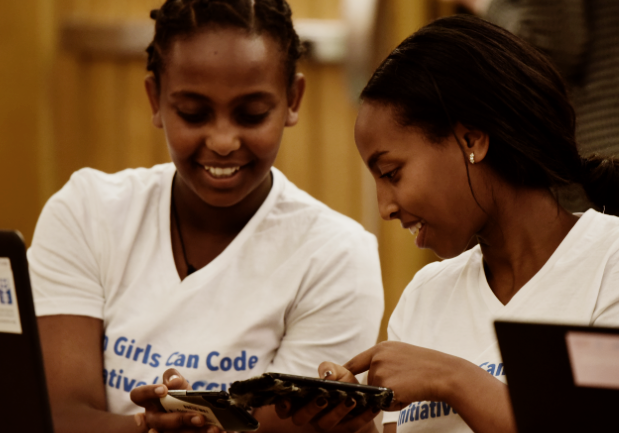
In addition, Investec has been running its Promaths programme since 2005, providing extra tuition in maths and science to learners in Grades 10 to 12 at selected schools across South Africa. While not explicitly aimed at girls, the programme has benefited 2 000 female learners in the past six years.
The Engen Maths and Science School has also achieved impressive results. Boasting a 96.7% pass rate for the 2022 matric class, the programme’s top three performing students were girls.
Providing them with valuable exposure and experience, these programmes empower young women to consider tech careers. Furthermore, many of them expose girls to female role models who can help break stereotypes and showcase the diverse pathways to success in tech.
‘Role models are critical to encouraging more girls to consider the STEM fields,’ says Howell. ‘Seeing female role models contributes to a sense of belonging and inspires learners.
‘I think initiatives where female role models visit schools to meet and engage with school learners would be wonderful; alternatively, given the resources, online talks streamed to the school,’ she says. ‘Learners often have a perception that those in STEM fields had an easy journey and never struggled with the subject matter. I feel that sharing different journeys is central to inspiring learners.’
According to Tinyiko Simbine, GirlCode’s CFO and COO, ‘it is very important for you to have role models who look just like you, to give you that extra push. Your ability to thrive and succeed increases. Our vision at GirlCode is to create a network of women who are highly skilled in software development and leadership skills, who will contribute towards an inclusive and innovative technology industry’.
Lesotho-born Nneile Nkholise has personal experience of how difficult it is as a black woman to operate in a sector without any role models. A former Forbes 30 Under 30 honouree, Nkholise founded the award-winning iMed Tech Group, which produces and supplies medical specialists with medical prostheses, bio-implants, dental aligners and custom-made surgical planning models.
‘You always have to try and prove the narrative wrong that women, and black women cannot start a successful company,’ she tells Ventureburn. Nkholise adds that because there are so few black women in the industry, ‘it’s difficult to get guidance from other black women’.
Yet thanks to initiatives such as Google’s Start-ups Accelerator: Women Founders in Africa programme and Hustle Academy; Ethiopia-based Tech African Women; and Ghana-based Women in Tech Africa, a new crop of women in tech is being cultivated.
Google’s Start-up Accelerator, launched on international Women’s Day in March 2023, is supporting 16 start-ups from six African countries by providing them with business and technical workshops along with mentor-ship, and investor networking. The Hustle Academy, launched on the same day, offers one-on-one mentorship and online workshops to women-led SMEs, though not necessarily in the IT space.
Tech African Women – organised by the UN Economic Commission for Africa in partnership with venture builder Betacube – aims to create a female-led tech start-up pipeline and community in Africa. Running from August to December 2022 in Ethiopia, Senegal, Tunisia and Tanzania, its first edition kicked off with an intensive three-day bootcamp and pitching competition, which was followed by a two-month online incubation programme for the eight best start-ups, giving them access to a pool of tech and design experts and a start-up coach.
The eventual winner was Juliana Busasi, a 27-year-old doctor from Tanzania, whose Ujana e-commerce platform offers a space where youths can buy sexual-reproductive products and receive sexual-reproductive health information without incurring the fear of judgement, stigma or discrimination. Other start-ups in the programme ranged from a jobs platform geared towards female caregivers; to an app aimed at cow breeders to optimise the quality of milk and beef.
Women in Tech Africa (WITA), meanwhile, has a three-fold mission – to promote the capabilities of African women; to nurture today’s female leaders and role models for the next generation; and to ensure Africa’s growth through technology by bridging the digital divide. Started by Ghana tech entrepreneur Ethel Cofie, WITA has members in at least 30 African countries, including South Africa.
Gradually female tech gurus are gaining recognition for their work, and at the same time are carrying the banner for women in tech. For example, Nigeria’s Odunayo Eweniyi, co-founder and COO of online savings platform PiggyVest, has been featured on several achiever lists – including Forbes 30 Under 30 Technology and Forbes Africa’s 20 New Wealth Creators – and last year she won the Forbes Woman Africa Technology and Innovation award. She’s also co-founder of the Female Coalition, a group of women with a mission to champion equality for women in Nigerian society.
Then there is Angela Semwogerere of Uganda, who – along with being the GM of IT consultancy Spidd Africa – is also the founder of Coding in Heels, whose goal is to inspire girls and women to embrace STEM. She is also a member of Uganda’s national task force on emerging technologies.
In South Africa, meanwhile, women tech innovators are revolutionising the women’s health industry through IT.
Thato Schermer and Nonhlanhla Sitole’s women’s e-health start-up, Zoie Health, recently raised an undisclosed sum during a pre-seed extension funding round to finance its expansion and growth.
The start-up, which bills itself as ‘a holistic digital wellness platform for women by women’, offers virtual consults, at-home consults, subscriptions for medication, resources and a community of women to support one another. Disrupt Africa reports that it serves more than 5 000 members with an 80% subscriber retention rate.
While there are many corporate initiatives doing good work to improve women’s representation in the African IT space, it’s trailblazers such as Eweniyi, Nkholise, Cofie and Mkwanazi who are ensuring they are paying their dues by passing on their skills and passion to the next generation of African women in tech – as well as using IT to create solutions specifically for women.
Images: Gallo/Getty Images, Flickr/UN Women



